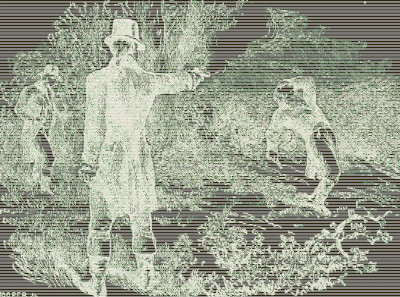1 Common law puts emphasis that questions on ‘what is just’ should be determined by localized precedent and haggling. I think that this is correct and right ― localization and precedent ― and I’m a fan of mechanisms that put pressure against universal statues and civil law that infringe upon localization and precedent. I don’t think that federal legislators or executives should have much power to write codes, statutes, and regulation into thin air. I don't think that federal governance should have unlimited control, even if they ’represent’ the majority of votes, and that their should be pressure external to legislators and executives to prevent this ‘tyranny of the majority’. In the states this mechanism preserving localization has largely been the culture of private gun ownership (not the constitution). I'm a fan of bottom-up not top-down governance.
2 De facto guns put pressure on how things have to be legislated and enforced in the states. Lawmakers can't do anything that disrupts precedent with a particular local population or they will have to deal with riots. Riots are a bigger deal in the states because they can turn deadly very quickly with the amount of guns in circulation. Guns mean that lawmakers can't do things too unpopular with local populations unless they want to deal with deadly riots in their cities ― which could make them unpopular enough to be voted out.
3 De facto Guns allows people to have privacy in their own homes without having to worry about some of the laws that are being passed, who is writing the pieces of papers determining what is a justified warrant, and some of the discussion about who is currently in charge of law-enforcement. Many land and home owners are armed in the US. Law enforcements needs a lot of resources to raid houses as they have to assume that every home that they get a warrant on has armed occupants. In nations where guns are less prevalent ― even if they have codified legislation restricting when law enforcement can ask for warrants ― privacy of property trends towards being less respected because the law enforcement there does not need as many resources to raid houses. Private-public life distinction is preserved to a high extent in the states because of guns.
4 The constitution is needed pragmatically to ensure fœderal unity ― ending slavery though it was an interesting gimmick ― but it has been encroaching with its influence with civil law and rights creeping in through it. Think about how the 14th and 15th amendments have/are being abused by interpreters to further centralize the federal government and to give more power to legislators. Support for guns (human dignity also) can be maintained and developed through precedent: shortcuts through the constitution towards these goals always undermines precedent and localization. The second amendment itself is a paradox for how it is an external check on the codified government that is legislated into the codified government. Directly encoding rights into constitution was not a common-law way of accomplishing things.
― Nick land
5 The US was started out decentralized and ‘common law’, but has been trending towards centralization and ‘civil law’ through the constitution and the encroaching influence of French Napoleonic law. Those that founded the US would probably prefer the more decentralized common law society that they founded. They were descendants of Englishmen. They engaged in duels with one another. The continental army was itself composed of armed landowners that were tired of top-down mandates and taxes. But what the ‘founding fathers’ would say now may not be always relevant as they lived in a much different time.
